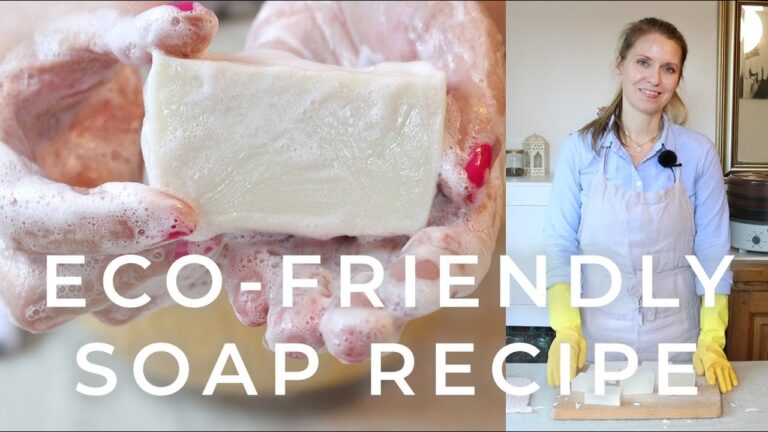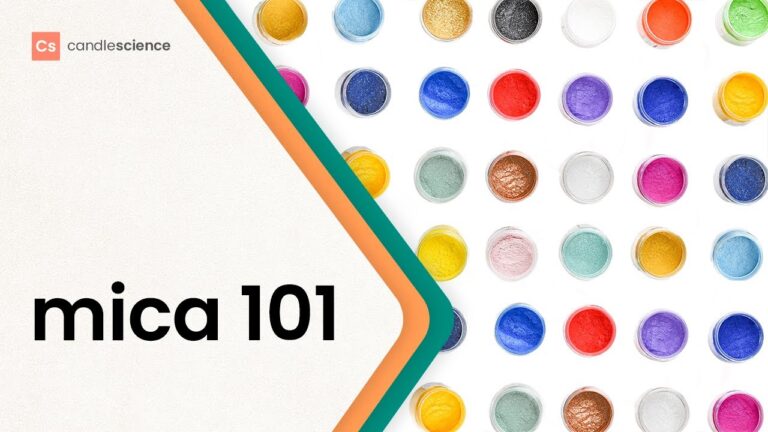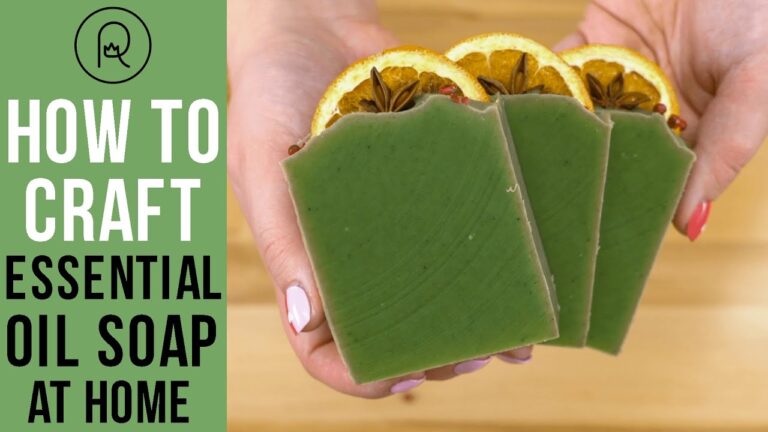In a world where sustainability is becoming increasingly important, the art of soap making is no exception. Sustainable soap making practices not only benefit the environment, but also provide consumers with a healthier and more ethical option for personal care products. From using natural ingredients to reducing waste and energy consumption, sustainable soap makers are leading the way in creating products that are not only good for your skin, but also for the planet. Join us as we explore the world of sustainable soap making and discover the benefits of making the switch to eco-friendly soaps.
What are some eco-friendly ingredients commonly used in sustainable soap making?
When it comes to sustainable soap making, there are several eco-friendly ingredients that are commonly used to create environmentally-friendly products. One popular ingredient is coconut oil, which is known for its moisturizing properties and ability to produce a rich lather. Another common eco-friendly ingredient is shea butter, which is derived from the nuts of the shea tree and is prized for its nourishing and hydrating effects on the skin. These natural ingredients not only help to create a luxurious and effective soap but also have minimal environmental impact, making them ideal choices for sustainable soap making.
In addition to coconut oil and shea butter, other eco-friendly ingredients commonly used in sustainable soap making include olive oil, which is celebrated for its gentle cleansing properties, and essential oils, which provide natural fragrances and therapeutic benefits. By incorporating these environmentally-friendly ingredients into their soap recipes, soap makers can create products that are not only gentle on the skin but also on the planet. With a focus on sustainability and conscious ingredient choices, these eco-friendly soaps are a great option for those looking to reduce their environmental footprint without sacrificing quality or effectiveness.
How can I reduce waste when making soap at home?
When making soap at home, there are several ways to reduce waste and make your process more sustainable. One key tip is to carefully plan and measure your ingredients to avoid any excess or leftover materials. Additionally, consider using reusable molds or containers to minimize single-use packaging waste. Another great way to reduce waste is to repurpose any leftover soap scraps or shavings by melting them down and creating new bars of soap.
Furthermore, choosing eco-friendly and biodegradable ingredients can help minimize the environmental impact of your homemade soap. Look for ingredients like natural oils, essential oils, and botanicals that are sustainably sourced and have minimal packaging. Additionally, consider using alternative packaging options such as compostable or recyclable materials to further reduce waste. By incorporating these tips into your soap-making process, you can create beautiful and sustainable products while minimizing your environmental footprint.
Are there any certifications or labels to look for when purchasing sustainable soap products?
When purchasing sustainable soap products, it is important to look for certifications and labels that indicate environmentally-friendly and ethical manufacturing practices. Some common certifications to look for include the USDA Organic Seal, Fair Trade Certified, Leaping Bunny (cruelty-free), and Rainforest Alliance Certified. These certifications ensure that the soap products are made with natural ingredients, are not tested on animals, and support fair labor practices. By choosing soaps with these certifications, consumers can feel confident that their purchase is contributing to a more sustainable and ethical industry.
Sustainable Ingredients: A Key to Eco-Friendly Soap Making
Looking to make a positive impact on the environment? Look no further than sustainable ingredients for your soap making needs. By incorporating natural and eco-friendly materials such as organic oils, essential oils, and plant-based colorants, you can create beautiful and effective soaps while minimizing your carbon footprint. Sustainable ingredients not only benefit the environment, but they also provide a high-quality product that consumers can feel good about using. With a wide variety of sustainable options available, there is no limit to the creativity and innovation that can be achieved in eco-friendly soap making.
When it comes to eco-friendly soap making, sustainable ingredients are the key to success. By utilizing natural and renewable resources, you can create products that are not only good for the planet, but also for your skin. From nourishing oils to botanical extracts, sustainable ingredients offer a wealth of benefits for both the environment and the consumer. By choosing to use sustainable ingredients in your soap making process, you can take a small but impactful step towards a greener and more sustainable future.
Step-by-Step Guide to Efficient Soap Making Practices
Are you looking to streamline your soap making process and create high-quality products efficiently? Look no further! Our step-by-step guide to efficient soap making practices will help you achieve just that. By following these simple yet effective steps, you can save time and resources while still producing luxurious soaps that your customers will love.
First, start by gathering all the necessary ingredients and equipment before you begin the soap making process. This will help you avoid any unnecessary interruptions and ensure a smooth workflow. Next, carefully measure out your ingredients and follow the recipe closely to achieve the desired results. Remember, precision is key in soap making, so take your time and double-check your measurements to avoid any mishaps.
Once you have mixed and poured your soap into the molds, allow them to cure properly before unmolding and cutting. This step is crucial in ensuring that your soaps are firm and long-lasting. Finally, package your soaps in a professional and attractive manner to appeal to your customers. By following these steps consistently, you can establish efficient soap making practices that will set you apart in the industry.
Reducing Waste: Innovative Techniques for Eco-Friendly Soap Making
Looking to reduce waste and create eco-friendly soaps? Look no further! By utilizing innovative techniques such as upcycling leftover oils and incorporating natural ingredients, you can craft luxurious soaps that are both sustainable and environmentally conscious. Not only will you be reducing your carbon footprint, but you’ll also be creating unique and high-quality products that are sure to impress.
With a focus on reducing waste, eco-friendly soap making can be a fun and rewarding experience. By experimenting with different techniques such as zero-waste packaging and using biodegradable materials, you can create soaps that not only benefit the planet but also your skin. Embracing sustainability in soap making not only helps the environment but also inspires others to make conscious choices in their daily routines. So why wait? Start your eco-friendly soap making journey today and make a positive impact on the world one bar at a time.
Eco-Conscious Packaging: The Final Step in Sustainable Soap Making
In the world of sustainable soap making, eco-conscious packaging serves as the final step in ensuring a truly environmentally friendly product. By using biodegradable materials such as recycled paper or compostable plastics, soap makers can minimize their impact on the planet and reduce waste. Not only does eco-conscious packaging help to protect the environment, but it also appeals to eco-conscious consumers who are increasingly seeking out products with minimal environmental impact. By incorporating sustainable packaging practices into their soap making process, manufacturers can demonstrate their commitment to sustainability and attract a growing market of environmentally conscious customers.
By incorporating sustainable practices into soap making, we can not only reduce our environmental impact but also create products that are better for both our bodies and the planet. From using natural ingredients to minimizing waste, sustainable soap making offers a holistic approach to skincare that benefits us all. Making the switch to eco-friendly soap not only supports a healthier lifestyle but also contributes to a greener future for generations to come. Embrace the power of sustainability in soap making and make a positive difference today.



